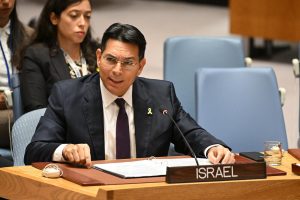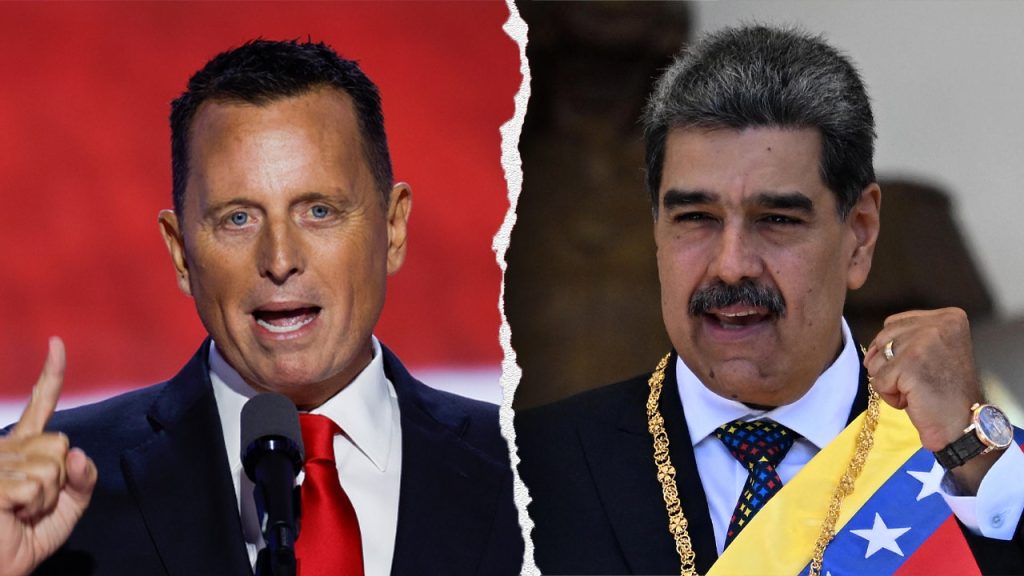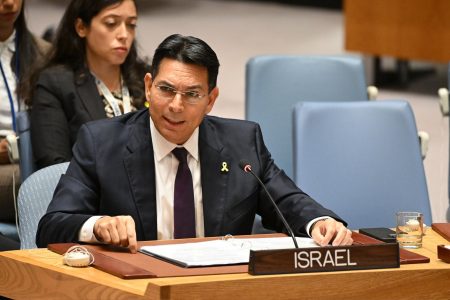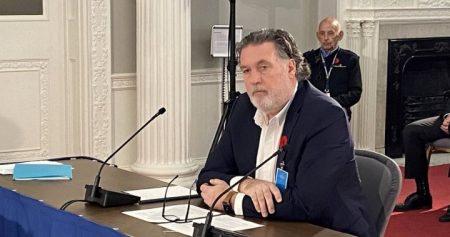The release of six American detainees from Venezuelan custody marks a significant development in the complex and often strained relationship between the United States and Venezuela. Orchestrated by Richard Grenell, President Trump’s special envoy for special missions, the release followed a meeting with Venezuelan President Nicolás Maduro in Caracas. While the specifics of the negotiations remain undisclosed, the release underscores the ongoing diplomatic efforts, albeit often tense, between the two nations. The identities of the freed individuals have not been officially confirmed, but images released by Grenell show four of them wearing light-blue Venezuelan prison attire, suggesting they were held in Venezuelan correctional facilities. This event raises questions about the remaining American detainees believed to be held in Venezuela and the potential for future releases. It also highlights the potential for diplomatic engagement, even amidst significant political disagreements, to achieve humanitarian outcomes.
The backdrop of this release is a history of fraught relations between the U.S. and Venezuela, marked by accusations of human rights abuses, political repression, and economic mismanagement against the Maduro regime. The U.S. has imposed sanctions on Venezuela, targeting key figures in the government and the oil sector, in an attempt to pressure Maduro and support the opposition. Venezuela, in turn, has accused the U.S. of interference in its internal affairs and of orchestrating attempts to destabilize the government. The detention of American citizens has been a recurring point of contention, with Venezuelan authorities accusing them of various crimes, including terrorism and mercenary activities. The U.S. has consistently maintained the innocence of these individuals and called for their immediate release. The recent release of the six detainees could signal a potential thaw in the frosty relations, but it remains to be seen if this will lead to further diplomatic progress.
The timing of this release raises several questions and potential interpretations. It comes amidst a global pandemic and a volatile international political landscape. For the Trump administration, the release of American citizens held abroad could be seen as a diplomatic victory and a demonstration of their commitment to protecting American interests. For Maduro, the move could be interpreted as a gesture of goodwill, potentially aimed at easing international pressure and exploring the possibility of sanctions relief. However, it is crucial to approach these interpretations with caution, as the underlying motivations and long-term implications remain unclear. The release could be a tactical maneuver on both sides, and it’s essential to observe subsequent developments to gain a fuller understanding of its significance.
The circumstances surrounding the detention of the released Americans and other U.S. citizens in Venezuela remain largely opaque. The Venezuelan government has accused them of various offenses, often related to alleged plots to overthrow the government or destabilize the country. However, critics have argued that these accusations are politically motivated and lack credible evidence. Human rights organizations have raised concerns about due process and fair trial guarantees for detainees in Venezuela. The release of these six individuals, while welcome, does not address the underlying concerns about the treatment of detainees and the potential for politically motivated arrests. It is crucial for the international community to continue monitoring the situation and advocating for the rights of all detainees in Venezuela.
The release of these six Americans brings renewed attention to the ongoing humanitarian crisis in Venezuela. Years of political instability and economic mismanagement have led to widespread shortages of food, medicine, and essential goods. Millions of Venezuelans have fled the country, seeking refuge in neighboring nations and creating a regional migration crisis. The COVID-19 pandemic has further exacerbated the situation, straining the already fragile healthcare system and deepening the economic woes. While the release of the detainees is a positive development, it is crucial not to lose sight of the broader humanitarian crisis unfolding in Venezuela and the need for continued international support and assistance.
Moving forward, it remains to be seen whether this release will serve as a catalyst for broader dialogue and cooperation between the U.S. and Venezuela. The future of relations between the two countries hinges on a number of factors, including the willingness of both sides to engage in constructive dialogue, the potential for sanctions relief, and the evolution of the political and economic situation in Venezuela. The international community plays a crucial role in encouraging dialogue, promoting human rights, and providing humanitarian assistance. The release of these six Americans represents a glimmer of hope, but it is only a small step in a long and complex journey towards resolving the multifaceted challenges facing Venezuela and its relationship with the United States. Continued vigilance and engagement are essential to ensure that this positive momentum translates into tangible improvements for the Venezuelan people and a more stable and productive relationship between the two nations.










